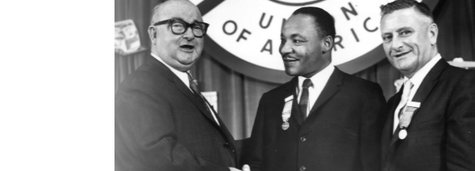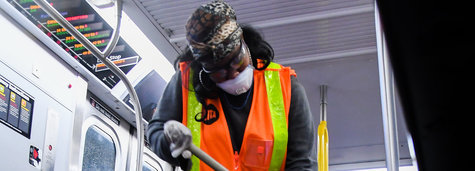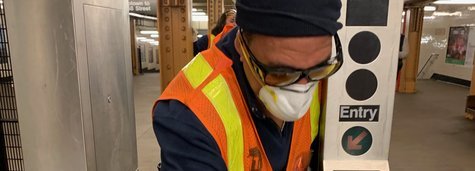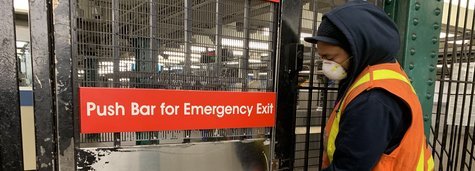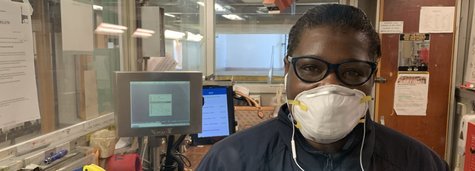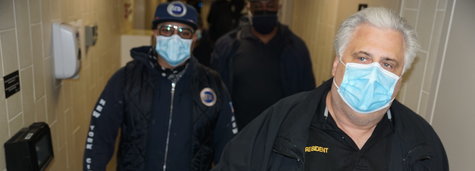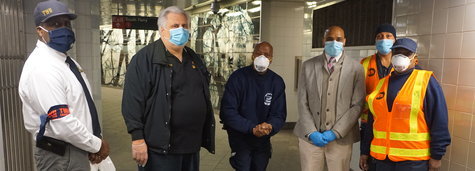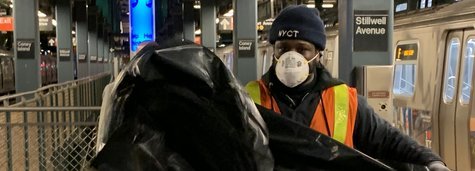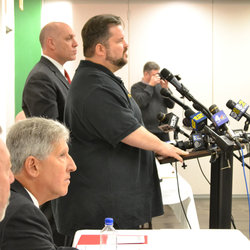MTA Kicks Strike Can Down the Road as Transit Unions Show Unprecedented Solidarity
He said that the MTA’s repeated insistence that it has no ability to pay the raises recommended by the panel is “a phony smokescreen rejected by four consecutive panels of arbitrators” who have handled recent MTA labor disputes. He also pointed out that the MTA recently settled a contract going into 2017 with its police union which grants net yearly raises of 2.3%.
President Samuelsen said the MTA has a way of challenging the decisions of arbitrators which are not to its liking and aggressively implementing those with which it agrees. A case in point was how it contested the arbitration decision, back in 2009, that gave TWU Local 100 members three years of raises. It bitterly fought that decision although it had earlier committed to accepting the finding of the panel headed up by well-respected arbitrator John Zuccotti.
Now, said Parker, the MTA is making a divisive threat that “the modest wage increase the panel recommended would lead to a fare hike. Two point five percent a year can hardly be called extreme,” he said. He noted that the wage package was less than the prevailing standard in the commuter rail industry, judging from recent settlements in Chicago and Boston but that the LIRR unions are nevertheless willing to accept them.
Also at the press event was TWU International President Harry Lombardo, who addressed reporters directly, urging them not to portray these labor negotiations as “some sort of sporting event” where the public are seen as spectators to a game played by contending parties. “This is real life,” he said, noting that the issue of wages affects every worker in America and union struggles should not be seen as happening in isolation from the broader issues of quality of life in our country overall.
Also present were TWU Local 100 top officers including Secretary-Treasurer Earl Phillips, Recording Secretary LaTonya Crisp-Sauray, and Vice Presidents JP Patafio, Maurice Jenkins, Tony Utano, and Kevin Harrington. Both Mario Cilento of New York State AFL-CIO and Vinnie Alvarez of the Central Labor Council also were present, with Cilento pledging statewide resources and support.
SMART President Simon revealed that MTA negotiators said they were willing to go back to the table if the unions would rip up the recommendations of the PEB. They’re not about to do that.
Kicking the can down the road – as the MTA is doing by requesting another PEB – means that a new LIRR strike deadline could come as soon as July 19th. If that happens, TWU Local 100 President Samuelsen told the press, our union will do everything we can to legally support the workers. “The MTA needs to accept the recommendations of the expert panel,” he said, “and end this dispute.” He added that that the MTA budget “is a political document, and their budget choices tend to get ugly for workers around contract time.”
Anthony Simon added that the MTA’s capital budget “is what they choose to make it,” regularly featuring huge cost overruns that the MTA finds ways to afford.
New York State legislators in the audience expressed their readiness to write letters paralleling that penned by the Congressional delegation urging the MTA to settle the contract dispute. Singled out for recognition by President Samuelsen was newly-elected Congressman Hakeem Jeffries (D-Brooklyn) who has played an important role in advocating for the interests of working people.

